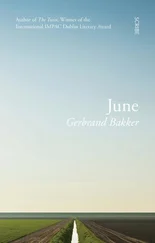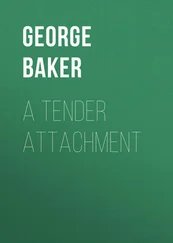Emily Dickinson. Despite her reputation ( probably the most loved and certainly the greatest of American poets , according to the back of Habegger’s biography), Dickinson wrote an awful lot of lazy rhyming quatrains, doggerel as far as she was concerned. She leafed through the Collected Poems , earth under her fingernails. It was night, pitch black outside but for the odd light in the distance. She drank a glass of wine and smoked a cigarette. Downstairs, a pan sat on the draining board with quite a bit of food left in it. The fire was burning. Never stung by a single bee, she mused. Bees everywhere: on a gentle breeze or in the clover. She thought of her university office: the cold computer containing all of her Dickinson notes and a very rough plan of her thesis, which was supposed to be about the plethora of lesser poems and Dickinson’s all-too-eager canonisation; the pot plants; the steel filing cabinets; and, through the window, which looked out on a long, narrow street, snow. Habegger’s indigestible biography — a doorstop full of question marks and nonsensical little theories (so exhaustive it even cites a coughing fit Dickinson’s great-great-uncle suffered in the spring of 1837 as a possible explanation for a certain sensibility in her poetry) — had delayed her work for months.
She screwed up the piece of paper on which she had written ‘curtains’ (the window in the small bedroom was still uncovered) and picked up the soft pencil. She imagined herself outside in the daylight with her back to the front door, and sketched the lawn, the gently winding stream, the low stone wall forming an L around the grass, the pigsty diagonally opposite the house, the new, straight path along the front wall, the three alders and the three shrubs. Pity she didn’t have any coloured pencils. There’d be a new path: from the front door straight through the grass, ending at the wall. There’d be flower beds. She tried to draw a rose arch, which proved much more difficult than she’d imagined. It ruined the sketch and she didn’t have a rubber. She screwed up this piece of paper too. Sticking a new cigarette in her mouth instead, she picked up the Collected Poems and opened it at the contents page. She’d had this book for more than a decade — there were notes in it, the pages were stained, the dust jacket was torn — and now noticed for the first time how short the section titled LOVE was and how long the last, TIME AND ETERNITY. She started to cry.
The husband sat in the living room that was too small for the new TV. His wife’s mother sat next to him on the couch, her father on a chair near the TV. Gusty November rain beat against the windows, a street light swung back and forth. The TV was on. It had been on the first time the husband came here, a good few years ago now, and every other occasion he had been here at night. Quite often during the day too, especially at weekends. They had turned the volume down five notches when he had arrived but it was still annoying. There was singing and judging, with blaring ads in between.
‘It’s almost December,’ the mother said.
‘Yes,’ said the husband.
‘This is really starting to upset me.’
‘What can we do about it?’ he asked.
‘It’s all your fault.’
‘My fault?’
The mother gave him a look that said no further explanation was necessary and he should realise perfectly well that he was to blame.
‘Yes,’ said the father, without so much as a glance in his direction. Up till then he hadn’t even opened his mouth.
‘Yes, what?’ asked the mother.
‘Just, yes,’ said the father.
She sighed. ‘How can we start the festive season like this? St Nicholas. Christmas.’ She gestured weakly at the windowsill, where three candles were already burning in a triangular holder. The flames were motionless; the windows were well insulated.
‘Don’t ask me,’ said the husband.
‘Bah!’ said the father.
‘What?’ asked the mother.
‘He can’t sing at all!’
‘Has she done this before?’ the husband asked. ‘I mean, before me.’
‘Never! She never just disappeared. She didn’t even like pyjama parties. She never stayed the night at friends’.’
‘At my brother’s, she did,’ the father said.
‘Yes. She never got enough of that. Staying at her uncle’s. She never even mentioned her auntie. Those two were thick as thieves.’
‘He taught her how to smoke,’ said the father.
‘Bah. That’s right. And always putting ideas in her head. He used to say funny things to her. When she came home, it always took ages to get her back to her old self.’
‘What kind of things?’
‘That she had to be able to do things herself. That when it comes down to it, people are always alone. That you should never let other people tell you what to do.’
‘That’s not so bad, is it?’
‘No, but she took it to heart, she upped and left. Her auntie was distraught, but her uncle just sniggered. And when she came home again, she wouldn’t listen to us at all.’
‘So she used to disappear.’
‘No, an hour or so, never long. Two hours at most. When we heard about the smoking, that was it. We refused to let her stay there ever again.’
‘My brother isn’t…altogether right,’ the father said.
‘That’s one way of putting it, I suppose,’ the mother said. ‘You could say he’s mad as a hatter.’
‘Come on…’
‘I’m always scared that he’ — pointing at her husband — ‘is going that way too. Fortunately he’s married to a very sensible, very strong woman.’
‘Drink?’ the father asked.
‘Yes, please,’ the husband said.
‘Sure, hit the bottle. That’ll solve things.’
‘You too?’ the father asked.
‘No, of course not! Have I ever drunk a single drop of alcohol?’
‘You’re never too old to start.’ The father got up and poured two old genevers: his own glass full to overflowing so that he had to bend over and take a slurp before he could pick it up. After putting the other glass down in front of the husband, he immediately returned his attention to the TV.
‘Yes,’ the mother said, sighing. ‘Him going that way too…’
‘ Ach , woman.’
She started to cry softly.
The husband sipped his genever. He wondered if his mother-in-law was right, if it was his fault. A squall of rain briefly drowned out the singing of a fat girl with spiky hair who was standing motionless in a large room. She had a magnificent, clear voice and seemed to forget everything around her while she sang. Her eyes gleamed, her hands hung next to her thighs, completely relaxed, she became beautiful. Soon after, they told her that she lacked the ‘necessary charisma’. Next, please.
‘Bastards,’ said the father.
*
During a commercial break, the mother started again. ‘Are they going to put you in prison now?’
‘No,’ the husband said. In front of him was a second glass of genever.
‘Why not?’
‘Because I’m paying for all the damage.’
‘So nowadays you can commit arson wherever you like without getting sent to prison?’
‘That depends, I suppose,’ the husband said. ‘I didn’t leave the scene. I cooperated. I think it’s related to that.’
‘Have you got the money?’
‘Sure.’
‘It’s still your fault.’
‘Why do you say that? Do you really think it’s that simple?’
‘Yes.’
‘You know what she did.’
‘Yes.’
‘So how can it be my fault?’
‘How do we even know it’s true? We’ve only got it from you. Who says you’re not lying?’
‘Why would I lie?’
Читать дальше












